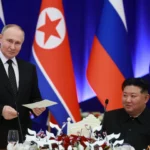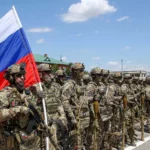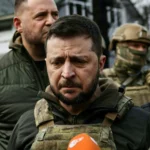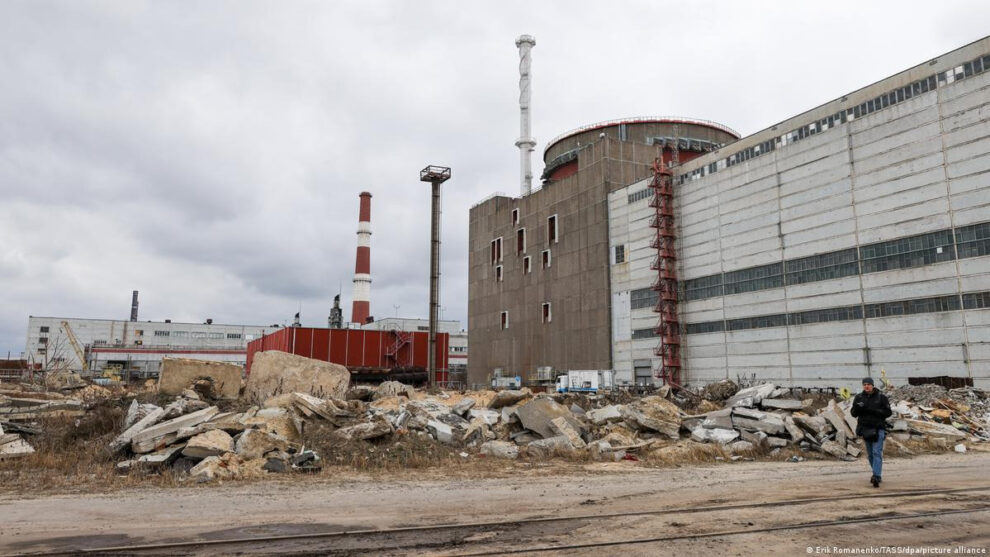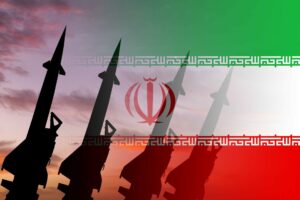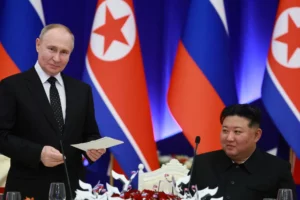Russian occupiers have ordered the evacuation of the city of Enerhodar, close to the threatened Zaporizhzhia nuclear power plant. Residents have reported looting and fears of forced deportations.
“I’m extremely concerned about the very real nuclear safety and security risks facing the plant,” Rafael Grossi, director general of the International Atomic Energy Agency, said in a recent statement about the situation at the Russian-occupied Zaporizhzhia nuclear power plant.
To prevent the risk of a serious nuclear accident and the disastrous consequences for the local population and the environment, he said, the nuclear plant in southeastern Ukraine must be protected.
Grossi last visited Europe’s largest nuclear facility in March. But he issued his latest warning after Moscow ordered the evacuation of the nearby town of Enerhodar, where most of the plant’s employees live, in response to an alleged increase in Ukrainian shelling.
Locals report panic and chaos
“Affected by the evacuation are 13 localities along the contact line, including Enerhodar, Dniprorudne, Vasylivka, Chernihivka, Polohy, Tokmak, Vodiane and Kamianka. People are frightened, having been warned of a counteroffensive by the Ukrainian army. That is why people have to be evacuated to Berdiansk for two weeks,” said a city council deputy who has already left the area. He fears that his parents may be harassed, since they have stayed behind in the occupied territory.
Pavlo*, a former employee of the Zaporizhzhia plant who preferred not to be named, said residents of Enerhodar were taken away from a local school and municipal hospital for several days. Both areas were surrounded by Russian soldiers, he said.
“The evacuation is headed by a collaborator, son-in-law of a former director of the power plant. So far, only those who want to leave or are afraid that Ukrainian authorities will return are being taken away. But we fear that later they will still deport us by force,” he said.
Ludmila*, another resident, said she is unclear about the reason for the evacuation because recently there was no fighting. But since May 6 all kindergartens and schools have been closed, she said.
“We were told children and their parents, the elderly and the sick would be prepared for evacuation. There is also a hotline where you can register for transportation,” she said.
But buses broke down, stranding people on the road, she said. Some were not taken to occupied Berdiansk, as promised, but to Russia instead. Others were housed in uninhabitable or remote buildings where finding adequate food was difficult, she added.
Employees of the occupying authorities in Enerhodar were also sent home, sending collaborators and Russian passport holders into a panic, she said. “Some of our acquaintances who have Russian passports immediately left for Crimea in their cars. But there was a traffic jam and they didn’t make it to the peninsula. They stayed in Henichesk on the Sea of Azov for the time being,” she said.
Nuclear plant workers in limbo
Enerhodar residents told DW that after more than a year of Russian occupation, only a third of the city’s once more than 53,000 inhabitants remain. Most are current or former nuclear plant workers and their families who aren’t being allowed to leave.
“Even those who refuse to work for the occupiers and no longer have access to the plant cannot leave and are turned back at the checkpoints,” Pavlo told DW.

The Ukrainian power plant operator Energoatom, on the other hand, said the occupiers were preparing to evacuate about 3,100 people from Enerhodar — 2,700 of them plant employees who had signed a contract with the Russians, along with their families. “This aggravates the already extremely critical shortage of personnel needed for safe operation of the power plant,” Energoatom warned.
Russia has denied the Ukrainian reports. The adviser to the Russian company Rosenergoatom, Renat Karchaa, said the team at the Zaporizhzhia power plant was operating as usual despite the announced evacuation.
“All further plans and measures will be adjusted to the real changes in the situation,” Karchaa said, according to Russia’s Interfax news agency.
Reports of food shortages, Russian looting
Since the evacuation was announced, many stores and banks that had been taken over by Russian banks have closed up shop. “On May 6 and 7, the Russian Promsvyazbank packed up its things and took off,” said Pavlo.
The city deputy also reported that all the medical equipment had been removed from the city hospital. “First they took their own wounded away. Then the dialysis patients. They were sent to Yevpatoriya in Crimea, for two weeks, they were told,” he said. But it is clear that this is about the robbery of equipment. The residents of a dacha settlement were also given until the end of the week to pack their things. Since Monday people have not been allowed to go there. Everything is now being looted from the dachas and taken away.”
The legitimately elected mayor of Enerhodar, Dmytro Orlov, is not in the city. He told Radio Liberty that the Russian occupiers took computers and documents from the municipal offices. There is also a food shortage, and gas stations and cash machines are empty, he added.
Residents could only confirm partial shortages of food and hygiene items. “As for food, there is not a big rush, because we have stocked up for a year for whatever comes — cereals, canned food, water,” Pavlo said, though adding that he hoped Ukrainian forces would free their town from Russian occupation as soon as possible.
Source : DW



